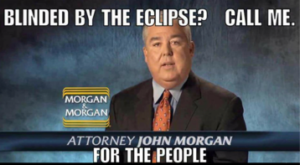The Department of Justice has confirmed that it is putting an official end to Operation Choke Point, the under-the-radar initiative by Obama financial regulators to discourage banks from doing business with certain disfavored businesses such as payday lenders and gun dealers. I’ve written a piece for the Washington Examiner on it, excerpt:
The fate of Choke Point should serve as a warning that it’s dangerous to allow those in power to flag legal-but-suspect domestic businesses for shaming and commercial ostracism — especially if the process is covert, and especially if the result is to cut off the outcasts from access to the basics of economic life.
At the same time, it’s significant that the answer to Choke Point was *not* to pass some new law compelling banks to do business with payday lenders, fireworks stands, or X-rated studios.
Part of a free society is that we shouldn’t force commercial relationships on private actors. Businesses — and that includes providers of credit and payments services — should legally be free to follow their conscience.
And Eric Boehm quotes me at Reason:
“It should serve as a warning that the government doesn’t get to flag for banks—or businesses generally—which legal-but-suspect domestic customers it would like them to ostracize,” Olson told Reason on Friday. “Those in power must refrain from signaling that they’d be pleased if certain categories of otherwise legal customer get cut off from their access to economic life.”
Earlier at our tag. More coverage: Politico, Vending Times (vending machine sales companies hail decision).
Filed under: banks, guns, Operation Choke Point, WO writings

